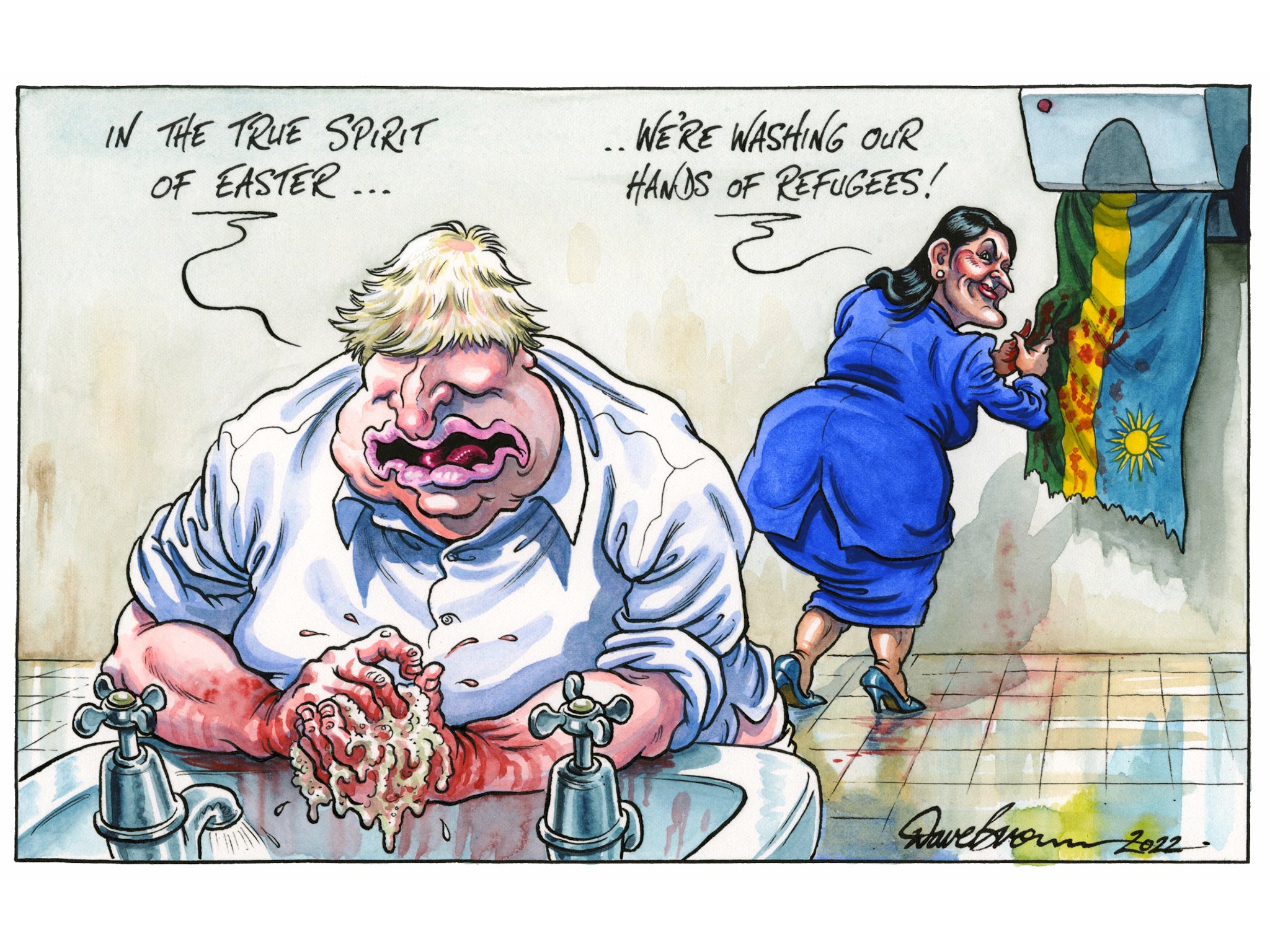Cruel, expensive and shameful as it is, the main problem with the government’s new Rwanda plan is that it actually can’t succeed in its unspoken aim of deterring refugees and others from trying to get to the UK.
The calculation remains broadly the same – people will remain so desperate to get to Britain they will still get into a boat or the back of a lorry or some new route in order to make a new life for themselves.
Even with the armed forces involved (who have better things to do) the people crossing the channel still have a chance of making it into the UK undetected, and therefore they will continue to risk their lives.
The proven ingenuity of the evil people smugglers will ensure that this gruesome market in human hopes and fears will adjust. The plan will, at best – from the government’s point of view – make a marginal change.
There is a terrible, and probably unlawful, injustice lying at the dark heart of this policy, which is that most of those trying to cross the channel are “illegal migrants”.
It’s worth mentioning that, despite its common currency, that concept has no meaning in the world of asylum-seeking – under international convention, anyone almost anywhere has the right to claim asylum. They are only “illegal” when the claim is duly shown to be unfounded. Two-thirds of refugees do have their claims agreed.
So, far from being welfare scroungers, criminals and terrorists; most migrants throughout history have been seeking work and the opportunity to rebuild their lives.
It is a little unsettling to see the daughter of refugees from east Africa launching a strategy to send refugees to east Africa. Yet that is precisely what Priti Patel is seeking to do.
Rwanda is a nation with a troubled history, human rights challenges of its own, and a strong record of accepting refugees from the war-torn countries surrounding it. But it is a developing economy, ill-suited to processing and resettling the “uncapped” (Boris Johnson’s word) number of refugees and others being exported from the UK.
The promises of “infrastructure” and “partnership”, presumably funded by diverting the overseas aid budget, are vague. If the refugees were to be housed in decent accommodation, fed and given proper medical care, then they would hardly act as the deterrent the government has in mind.
In order for the Rwanda plan to have any chance of success, those destined to end up there will have to be terrified of the conditions they’ll find. Cruelty and disease are baked into the scheme.
The dangers of the centres turning into undeclared camps are obvious. Similar off-shoring centres pioneered by Australia ended up being squalid humanitarian disaster zones.
On top of that, there is plainly one arbitrary set of rules for refugees from Ukraine, Hong Kong and Afghanistan (albeit flawed) and another for those from the rest of the world.
To keep up to speed with all the latest opinions and comment sign up to our free weekly Voices Dispatches newsletter by clicking here
The problem is that the rest of the world includes places such as the Sahel, the Horn of Africa and the Middle East, where the effects of war have also destroyed lives and created floods of refugees.
It is not immediately obvious, for example, why a Uighur refugee fleeing President Xi’s persecution will find themselves sent to a camp in Rwanda, but one from Hong Kong will at least be processed and looked after in the UK.
What, it needs to be asked, is the difference between a Ukrainian escaping and an Eritrean seeking the same refuge? There is also the absurd and additionally discriminatory notion that only women can count as genuine refugees.
The most baleful phrase of the day was “one-way ticket”. This is not a method whereby genuine refugees from, say, Mali or Libya – very obvious war zones – can be assessed fairly in Rwanda and then welcomed in Britain. No matter how genuine their claim, they will never be allowed into the UK.
This is a way of paying a poor country to accept helpless refugees, forgetting about them, and offshoring Britain’s national conscience. It won’t work, though and it doesn’t deserve to.







Join our commenting forum
Join thought-provoking conversations, follow other Independent readers and see their replies
Comments